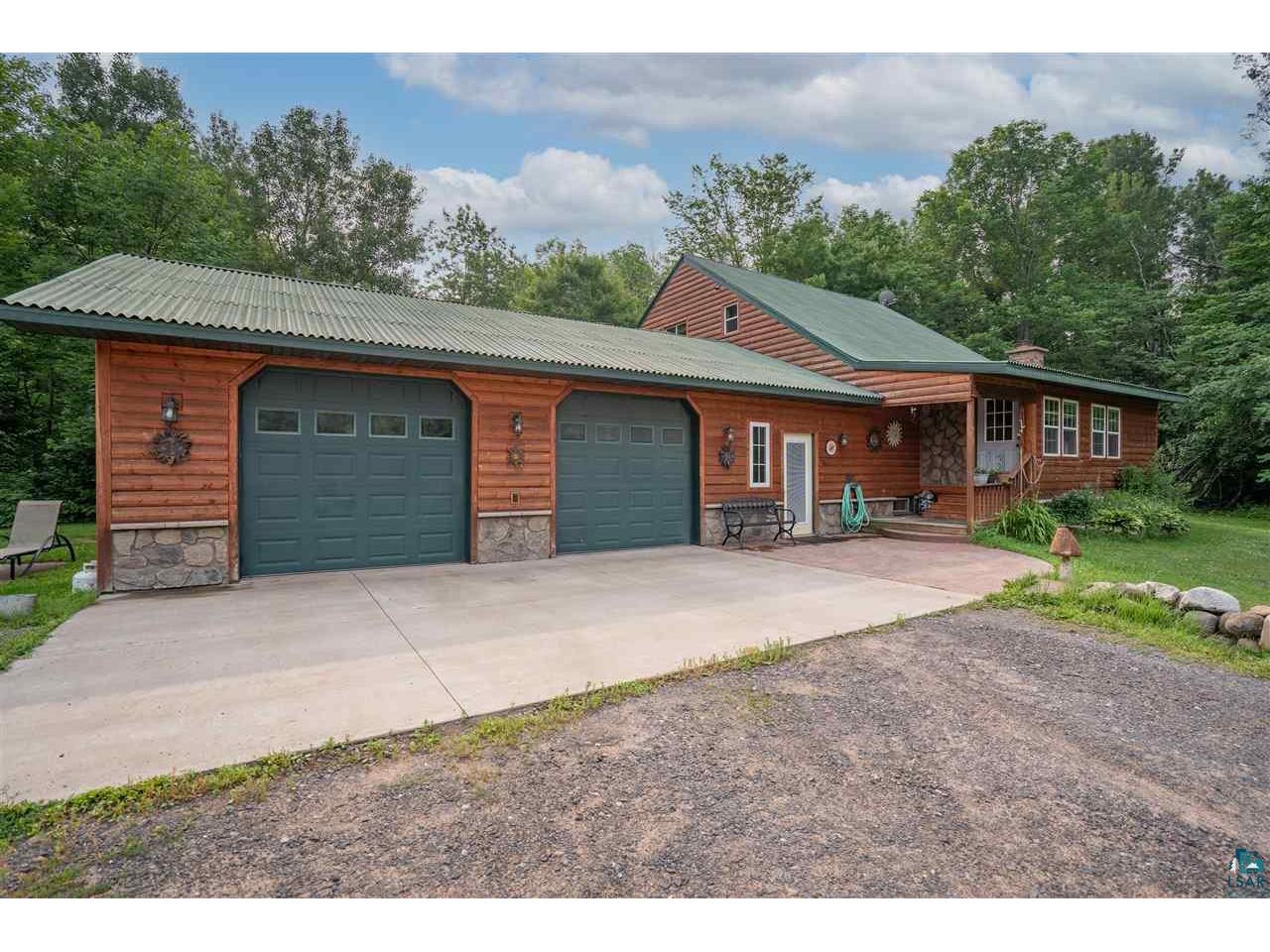Homes For Sale Brule Wi – The democratization of commerce has opened up opportunities for millions of people, giving them the chance to pursue their dreams and create their own paths to success. A high-quality winter coat, for example, will keep you warm and dry through years of cold weather, offering comfort and protection that a cheaper, mass-produced coat cannot match. When you buy something made from premium materials, crafted with attention to detail, and tested for reliability, you can expect it to deliver value that surpasses its initial cost. After the sale is complete, the buyer assumes responsibility for the business and takes control of its day-to-day operations. For those on a budget or looking to stretch their money further, second-hand markets provide an opportunity to purchase goods that would otherwise be out of reach. It doesn’t fall apart after a few uses, nor does it need to be replaced after a season. It’s easy to understand why people seek out quality goods for sale. Second-hand markets also promote the idea of a circular economy, an economic system that focuses on reducing waste and reusing products. In addition to individual sales, online marketplaces often feature businesses and professional sellers who specialize in second-hand goods, providing buyers with a curated selection of high-quality items. For sellers, the market for second-hand goods offers an opportunity to declutter their homes and make some extra money. The online second-hand market has also made it possible for people to buy and sell niche items that may not be available in local stores. Another key benefit of second-hand goods is their positive impact on the environment. The same logic applies to tools, kitchen appliances, furniture, and even technology. The object becomes more than just an object – it transforms into a transaction, an exchange of value. Second-hand goods for sale have become an integral part of today’s economy, a trend that transcends geographic, economic, and cultural boundaries. This revival can be attributed to a combination of economic factors, growing awareness of environmental issues, and a shift in consumer attitudes toward sustainability and the value of pre-owned items. The items placed for sale are not merely commodities; they are often vessels of memories, symbols of past achievements, or representations of something bigger than the price tag they carry. But in reality, even the most profound relationships can be commodified in some way. These brick-and-mortar stores offer a different shopping experience, one that is often characterized by the thrill of the hunt. While many artists and creators are forced to sell their work in order to make a living, there is still a sense of purity in the act of creation.

Brule, WI Real Estate Brule Homes for Sale
Estimated home valuessearch recent home salescompare nearby homes

Brule, WI Real Estate & Homes for Sale
Estimated home valuessearch recent home salescompare nearby homes

Brule, WI Real Estate Brule Homes for Sale
Estimated home valuessearch recent home salescompare nearby homes

1740 County Highway B, Brule, WI 54820 Trulia
Estimated home valuessearch recent home salescompare nearby homes

14186 E Seven Mile Road, Brule, WI, 54820 MLS 6524743 Edina Realty
Estimated home valuessearch recent home salescompare nearby homes

Brule, WI Real Estate Brule Homes for Sale
Estimated home valuessearch recent home salescompare nearby homes

Brule, WI Real Estate Brule Homes for Sale
Estimated home valuessearch recent home salescompare nearby homes

Brule, WI Real Estate Brule Homes for Sale
Estimated home valuessearch recent home salescompare nearby homes

2055 W Colby Rd, Brule, WI, 54820 MLS 6098427 Edina Realty
Estimated home valuessearch recent home salescompare nearby homes

Brule, WI Real Estate Brule Homes for Sale
Estimated home valuessearch recent home salescompare nearby homes
One common concern is the risk of purchasing items that are damaged or not as described. In a world where everything is for sale, it’s easy for the vulnerable and the marginalized to be taken advantage of. This pride comes not just from the product itself, but from knowing that you are supporting a tradition of craftsmanship and care. In some cases, it’s not just objects that are for sale, but entire industries or institutions. Every click, every like, every follow, is part of an ongoing transaction. Whether it's old furniture that no longer fits with their style, clothing that no longer fits, or electronics they no longer use, selling second-hand items allows individuals to recoup some of the money they spent on these goods. In conclusion, second-hand goods for sale represent more than just a financial transaction; they embody a shift toward sustainability, individuality, and social responsibility. Overpricing an item can lead to it sitting unsold, while underpricing it can result in lost potential revenue. Vintage clothing, in particular, has gained a significant following, with people seeking out unique, one-of-a-kind pieces that cannot be found in mainstream stores. In conclusion, the market for second-hand goods for sale is an ever-growing and dynamic space that offers numerous benefits to both buyers and sellers. A business for sale is not always as it appears on the surface, and the buyer must examine the company’s financial statements, contracts, debts, and even its customer relationships before deciding whether to proceed with the transaction. In this sense, online second-hand markets have not only made pre-owned goods more accessible but have also made them more desirable, offering an alternative to the mass-produced, one-size-fits-all nature of new products. There are communities that exist outside the realm of traditional commerce, where sharing, collaboration, and mutual support take precedence over profit. Many people find that buying second-hand furniture allows them to acquire high-quality pieces that are built to last, often with a level of craftsmanship that is hard to find in mass-produced furniture. Websites and apps like eBay, Craigslist, Facebook Marketplace, and Poshmark have made it easier than ever to find second-hand goods for sale, offering a wider selection and more convenience than traditional brick-and-mortar stores. Similarly, gently used clothing from high-end brands can be found for a fraction of their original retail price. They walk into a space that holds the potential for their own memories to be created, for their own life to unfold. Both the buyer and the seller are seeking the best possible terms, and finding common ground can be a challenge. In this broader sense, the concept of “for sale” is not just about the exchange of goods; it’s a driving force in the global economy, influencing how people live, work, and interact with the world around them. People are increasingly looking for quality over quantity, preferring items that are durable, timeless, and well-made.
While some people may be hesitant to purchase pre-owned electronics due to concerns about quality or reliability, the second-hand market for electronics has become increasingly trustworthy. The object becomes more than just an object – it transforms into a transaction, an exchange of value. The decision to sell an heirloom piece of furniture, for example, can be emotionally complex, as it involves a shift in one’s connection to the past. This can bring about feelings of uncertainty, as there’s no guarantee that the right buyer or partner will come along. The truth is that the idea of quality is deeply rooted in the philosophy of craftsmanship, heritage, and trust, which explains why certain items, often categorized as quality goods, tend to be prized more than others, even when they may come with a higher price tag. One of the major environmental concerns with new products is the waste that they often generate at the end of their life cycle. They remind us that, despite living in a world where everything is for sale, there are some things that remain priceless. These platforms provide a convenient way for sellers to connect with potential buyers, set their prices, and arrange for shipping or pick-up. Additionally, there is the challenge of integrating the business into their existing operations and ensuring that it continues to thrive under new ownership. Quality goods stand in stark contrast to this cycle. One of the primary reasons people turn to second-hand goods for sale is financial. Self-help books and motivational speakers promise to sell us the tools to fix ourselves, to buy into a better version of who we could be. The sale agreement will include details about the purchase price, payment terms, assets being transferred, and any contingencies that may apply. The idea that everything is for sale works to perpetuate inequality, as those with the most resources can continue to amass power and wealth, while others are left to scramble for what little they can get. In some cases, buyers may also acquire businesses with existing intellectual property, such as patents, trademarks, or proprietary technologies, which can offer a competitive edge in the market. These platforms often provide tools that help streamline the due diligence process, including access to financial documents, business valuations, and other relevant data. The rise of online platforms dedicated to the sale of second-hand goods has also played a significant role in the growing popularity of pre-owned items. Unlike mass-produced items that may become outdated or fall apart with minimal use, quality products are designed to endure. People are not just looking for things that work well; they want products that elevate their environment and their experiences. In addition to offering unique items and affordable prices, many second-hand stores also serve an important social and community function.